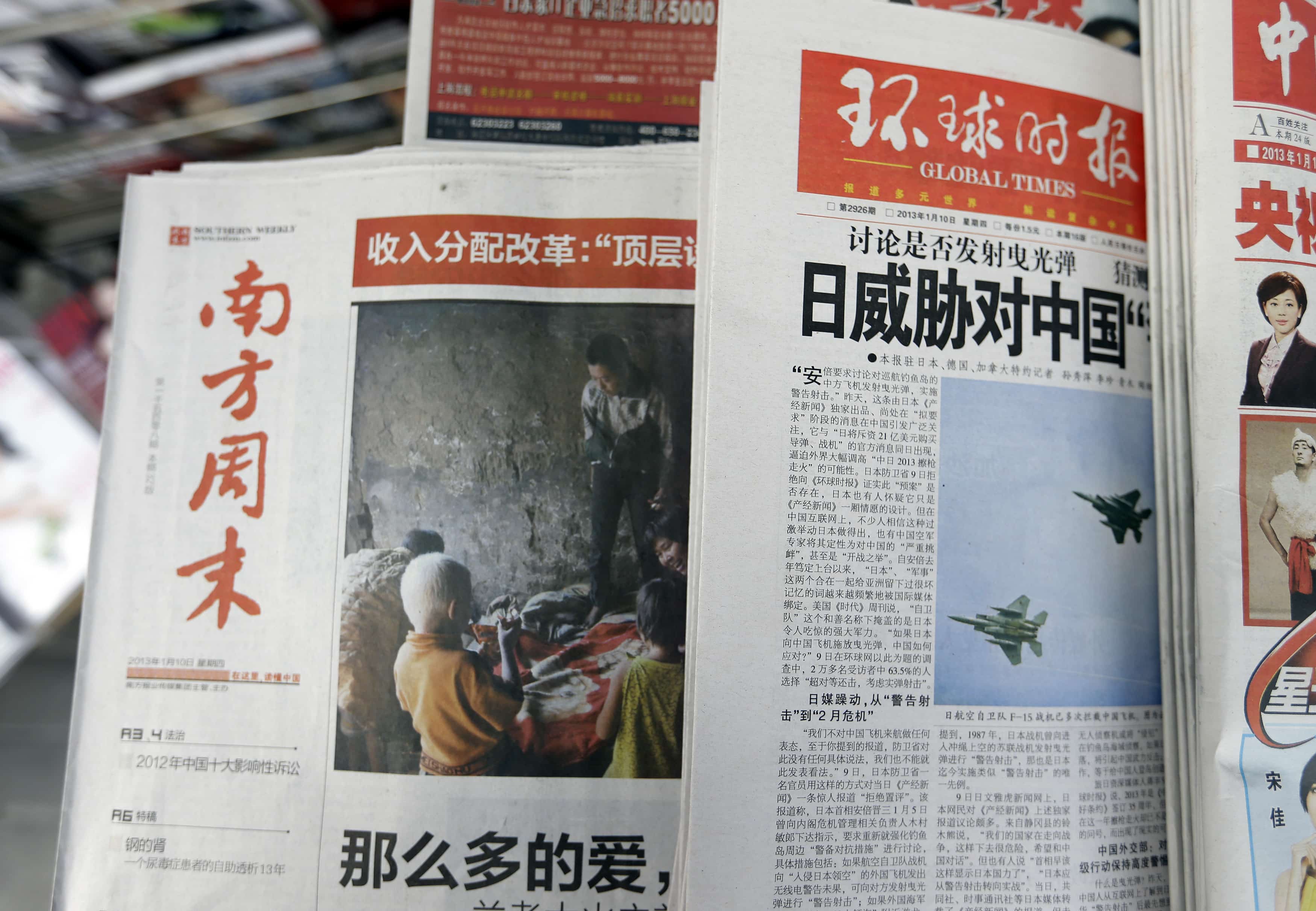Chinese Communist Party media controls are increasingly constraining news outlets based outside China.
Chinese Communist Party media controls are increasingly constraining news outlets based outside China. This is the key finding of a report released today, authored by Freedom House research analyst Sarah Cook and published by the Center for International Media Assistance at the National Endowment for Democracy.
“The dynamics are subtle, but the reality is that the ‘China Factor’ exists in newsrooms around the world, be they internationally renowned outlets such as the New York Times and Bloomberg, a local newspaper in Nepal, or a Chinese radio station in Los Angeles,” said Cook. “The Chinese government’s efforts to influence reporting by foreign and overseas Chinese news outlets have intensified and expanded over the past five years.”
The new report — “The Long Shadow of Chinese Censorship: How Chinese Media Restrictions Affect News Outlets around the World” — examines this phenomenon across foreign and Chinese-language media outlets based outside mainland China and that reach audiences worldwide.
The study finds that Chinese officials have directly impeded independent reporting by media based abroad, barring foreign correspondents from sites of important incidents or pressuring senior executives not to publish content deemed politically undesirable to the regime.
More prevalent-and often more effective-are methods of control that subtly induce self-censorship among media owners and outlets. Indirect pressure has also been applied via proxies-including advertisers, satellite firms, and foreign governments. These international actors have boycotted disfavored outlets, cut transmission signals, or arrested activists disseminating news critical of the Chinese Communist Party.
The content targeted for censorship includes topics that may have global implications, such as human rights abuses, high-level corruption, and environmental pollution. Most frequently targeted are reports that touch “hot button” issues like the persecution of Tibetans, Uighurs, and Falun Gong practitioners, as well as Chinese-language commentary challenging the legitimacy of one-party rule.
Despite these trends, there are clear limits to Beijing’s influence. Journalists, activists, owners, and independent courts outside China have pushed back against pressure and scored some important victories. The result is a complex, nuanced, and ever-changing negotiation over where the “red line” lies.
“Much is at stake in this global contest between the Chinese government’s power and media freedom,” said Cook. “China is too important a country for the world not to be fully aware of what is happening on the ground and for Chinese people to lose vital sources of independent information and commentary.” *
Key findings by media type:
International media: Chinese authorities employ various measures to obstruct frontline journalists and retaliate against news companies for critical reports. Physical attacks, visa restrictions, and website blocks have increased, while cyberattacks have expanded from individual journalists to the global servers of leading outlets.
Offshore Chinese media: Chinese officials have taken especially forceful measures to obstruct the operations of media outlets run by independent-minded Chinese expatriates and that collectively reach audiences numbering in the millions within China. In several cases, foreign companies and event organizers-ranging from Apple to Eutelsat to NASDAQ-have assisted government efforts to obstruct reporting and content dissemination.
Local media in Asia, Africa, and Latin America: Local government officials, particularly in Asia, have occasionally taken steps to restrict or punish reporting that is damaging to China’s reputation, either at the behest of Chinese officials or to preemptively avoid tensions with a large donor and trading partner. In Africa and Latin America, promoting the Chinese government’s view appears to be the dominant tactic for influencing the public. As Chinese government-linked entities buy stakes in local media, self-censorship pressures could emerge.
Hong Kong, Taiwan, and the Chinese diaspora: Co-opting owners of media outlets in order to marginalize dissenting reporting and commentary has been a key strategy. Beijing’s efforts to influence newsroom decisions in Hong Kong have intensified, expanding to topics touching on the territory’s internal politics. In Taiwan, self-censorship on topics deemed sensitive to Beijing is increasing, as media owners seek new sources of revenue from mainland entities.
Freedom House is an independent watchdog organization that supports democratic change, monitors the status of freedom around the world, and advocates for democracy and human rights.
Join us on Facebook and Twitter (freedomhousedc) and stay up to date with Freedom House’s latest news and events by signing up for our RSS feeds, newsletter and our blog.



